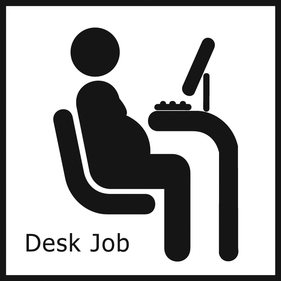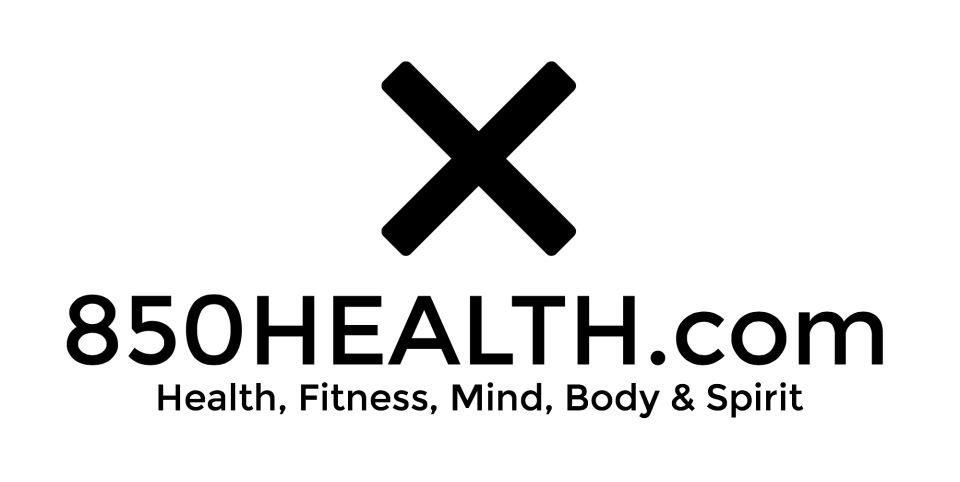 Your job demands long hours and most of it is sitting behind a desk or sitting at meetings. Not to mention, you had to sit in your car and drive to and from work to later go home and sit down to eat dinner. You're exhausted after and give in to any thought of exercise. Let me help. First of all, your health is at risk. "Alpa Patel's 2010 study, published in the American Journal of Epidemiology (Leisure Time Spent Sitting in Relation to Total Mortality in a Prospective Cohort of US Adults), which found a common link between physical inactivity and cardiovascular disease mortality even after adjusting for smoking, body mass index, and other factors." (MoveForwardPT.com) Got your attention?! Yes, sitting at a desk all day is now being compared to the mortality rates of those who smoke. Not to mention, the harmful effects on your posture which leads to muscle imbalance and later back, neck and shoulder pain. The computer has provided us physical therapists with job security because of the amount of people affected. What do we do? There are several things we can do, most of which won't get you fired. You obviously will have a difficult time getting your boss to buy you a treadmill desk, so a cheaper alternative would be the DeskCycle Desk Exercise Bike Pedal Exerciser By DeskCycle (the long way of saying bike that fits under your desk, or just the pedals). It is on Amazon for $150, small price to pay for your health and if you don't have a gym membership, there you go. Other options include taking short breaks and walking the staircase a couple times, going for a walk at lunch, doing cardio exercises in place (jumping jacks, jogging, mini-squats, etc.), just close your office door! Posture is also important. Prolonged sitting causes atrophy of your postural muscles and tightness of the large muscle groups that round your shoulders and tilt your pelvis forward, both of which are major contributors to upper and lower back pain. To improve neck and shoulder discomfort, step into your door frame of your office, put your elbows on the frame at shoulder height, gently lean in and feel a stretch in your shoulders and chest (don't stick your head out like E.T. either), hold for 30 seconds at least 3 times, a couple times during the day. Grab a thera-band palms up with both hands at shoulder width and rotate your arms outward maintaining a 90 degree bend at your elbow while squeezing your shoulder blades together. Do not use your upper traps (shrug) to compensate, squeeze your shoulder blades down and back for high repetitions greater than 30. Also, follow the link about shoulder pain to help with your posture at 850health.com. Thera-bands are great for your office because they do not take up any space and can give you varying resistance to be effective with several exercises. No thera-band? Sit back against the wall with your knees at 90 degrees and just hold for as long as you can or just simply sit and stand from your chair until you fatigue. It is easy to give in to the long hours, but you will find yourself more efficient at your job and at life if you get active! Take care of your body, it's the only one we get! For more exercises, email me at [email protected] or stop by our office at Sandestin Executive Health and Wellness Center! Otherwise, please share so that we can all BeneFIT! www.ScottRusin.com
2 Comments
Rachel
5/13/2014 06:33:42 am
I came across your blog, and this information is fantastic! Sitting at a desk all day is definitely a health issue for me, and I did not know these under-desk pedals even existed, so I am definitely snatching one of these up. Thank you for the suggestion!
Reply
Leave a Reply. |
Categories
All
850HealthStore
iPerformanceCenter www.ScottRusin.com 850Health Facebook Page Dr. Mark Giovanini Neurosurgeon AuthorScott Rusin is the Director of Physical Therapy at the Sandestin Executive Health & Wellness Center in Sandestin Resort, Miramar Beach, FL. He has a degree in Physical Therapy, is a Certified Strength & Conditioning Specialist (CSCS) and Nike Golf NG360 Performance Specialist Powered by the Gray Institute. Archives
November 2015
|



 RSS Feed
RSS Feed

